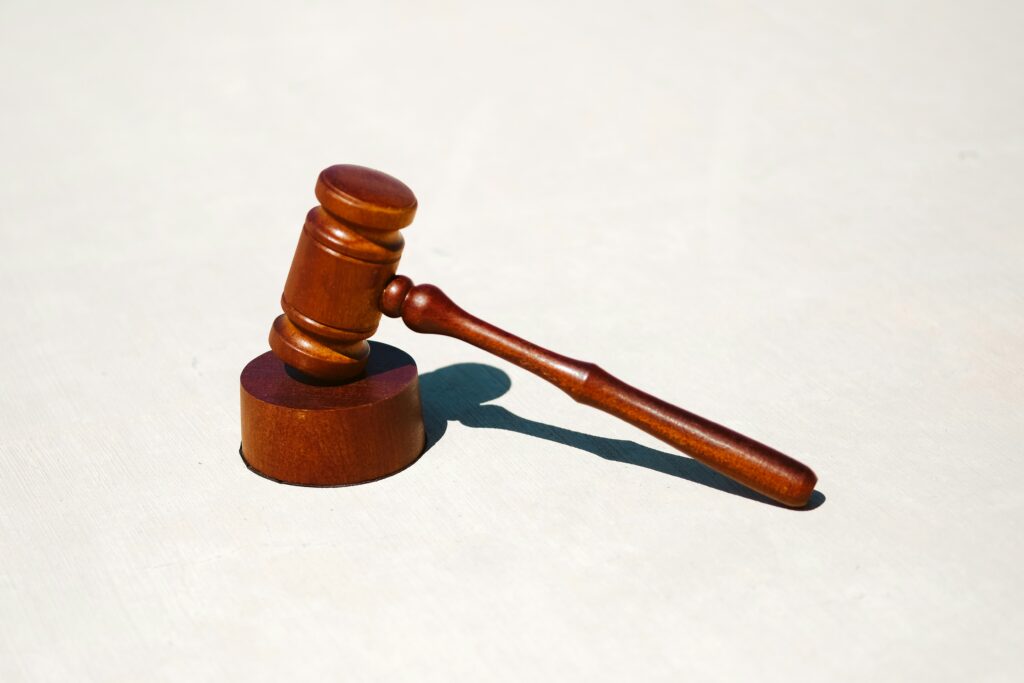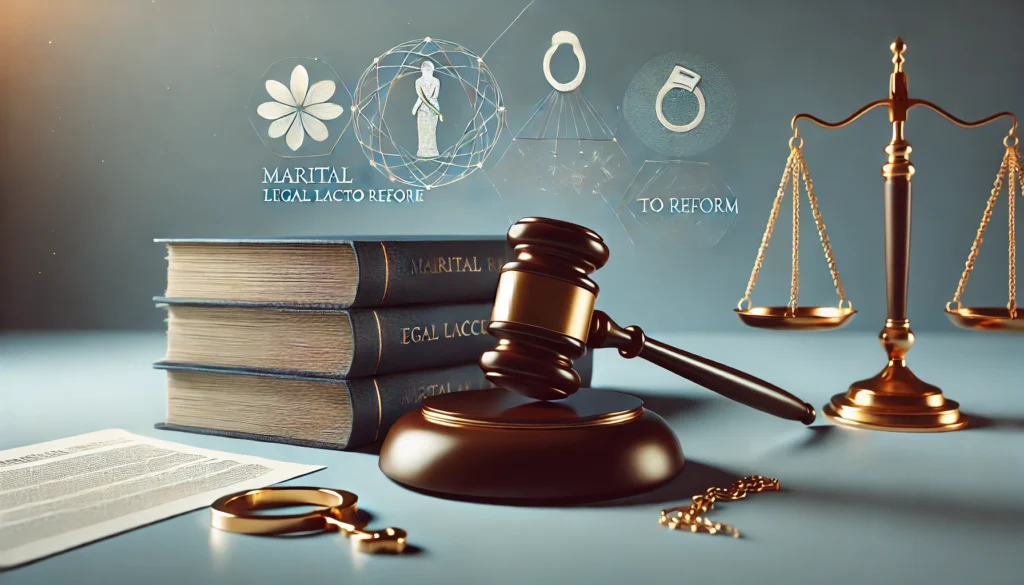Published on 29th August 2025
Authored By: Shivangi Sundaram
GJ Advani Law College, University of Mumbai
Court: Supreme Court of India
Bench: 9-judge bench comprising:
- Justice J.S. Khehar (CJI), Justice J. Chelameswar, Justice S.A. Bobde, Justice R.K. Agrawal, Justice R.F. Nariman, Justice A.M. Sapre, Justice D.Y. Chandrachud, Justice S.K. Kaul, Justice S.A. Nazeer
Date of Judgment: August 24, 2017
Relevant Statutes/Key Provisions:
- Articles 14, 19, and 21 of the Constitution of India
- Earlier judgments: P. Sharma v. Satish Chandra(1954) and Kharak Singh v. State of Uttar Pradesh (1962)
Brief Facts
The case originated from a 2012 petition filed by Justice K.S. Puttaswamy, a retired judge of the Karnataka High Court, challenging the constitutional validity of the Aadhaar scheme. The scheme, implemented by the Unique Identification Authority of India (UIDAI), mandated the collection of biometric (iris scans, fingerprints) and demographic data for issuing 12-digit identity numbers. The petitioners argued that the scheme violated the fundamental right to privacy due to:
Mass Surveillance risks: Centralised storage of sensitive data enabling profiling.
Lack of safeguards: Absence of statutory data protection
Coercive linkage: Mandatory linking with welfare schemes and bank accounts.
During the proceedings (2015), the Attorney General of India contended that the Constitution did not explicitly recognise privacy as a fundamental right, citing the judgments in M.P. Sharma (search/seizure not subject to privacy) and Kharak Singh (no constitutional privacy protection). Given the conflicting precedents and the significance of the issue, a three-judge bench referred the matter to a five-judge bench, which was eventually expanded to a nine-judge bench to conclusively determine whether the right to privacy is a fundamental right under the Indian Constitution and to reconcile conflicting precedents and settle privacy’s constitutional status.
Issues
- Whether the right to privacy a fundamental right under Part III of the Constitution of India?
- Whether the earlier judgments in M.P. Sharma and Kharak Singh correctly interpreted the Constitution regarding the right to privacy?
- What are the scope and limitations of the right to privacy, if recognised as a fundamental right?
- Whether data collection sans safeguards violate constitutional rights?
Arguments
Petitioners’ Arguments:
- The right to privacy is intrinsic to human dignity, autonomy, and liberty, which is protected under articles 14 (arbitrariness bar), 19 (freedom of movement, speech), and 21 (life and personal liberty) of the Constitution.
- P. Sharma and Kharak Singh relied on the discredited “silos” approach from A.K. Gopalan (1950), where fundamental rights were compartmentalized. This was rejected and overruled in Rustom Cavasji Cooper (1970) and Maneka Gandhi (1978), establishing interconnected rights.
- Post-Kharak Singh, judgments like Govind v. State of MP (1975) and PUCL (telephone tapping case) affirmed privacy under Article 21.
- Privacy is recognised under international law (UDHR, ICCPR) and is essential for democratic functioning.
- Biometric data collection lacked legislative backing (initially) and exposed citizens to profiling and exclusion.
- The Aadhaar scheme, by collecting and storing biometric data without adequate safeguards, infringes upon the right to privacy.
Respondents’ Arguments:
- The Constitution does not explicitly recognise the right to privacy as a fundamental right.
- The judgments in P. Sharma(8-judge bench) and Kharak Singh (6-judge bench), delivered by larger benches, are binding and must prevail over smaller benches recognising privacy.
- Privacy is an ambiguous concept and should be regulated by statutory laws rather than being elevated to the status of a fundamental right.
- The Aadhaar scheme serves legitimate state interests, such as efficient delivery of welfare services, prevention of fraud and promoting financial inclusion, which require minimal privacy intrusions for the greater public good.
Judgment
The Supreme Court unanimously held that the right to privacy constitutes a fundamental right under Article 21 and Part III of the Constitution, explicitly overruling the contrary positions taken in M.P. Sharma and Kharak Singh. The judgment established privacy as an “inalienable natural right” with three core dimensions: bodily integrity (integrity of the physical person and the right to make decisions about one’s own body and protection from physical intrusions), informational privacy (concerns the protection of personal data and the right to control its dissemination), and decisional autonomy (freedom to make personal choices without undue interference from the state or other actors like choices in marriage, procreation ad sexual orientation). Each of the concurring opinions reinforced that the right to privacy includes autonomy over personal decisions, bodily integrity, and protection of personal information. Justice Chelameswar, for instance, stated that the right to privacy implied a right to refuse medical treatment, a right against forced feeding, the right to consume beef, and the right to display symbols of religion in one’s appearance. While affirming the fundamental nature of the right to privacy, the Court clarified that it is not absolute and is subject to reasonable restrictions. The Court laid down a three-fold test to determine the constitutionality of any law or action that infringes on this right:
(1) Legality – requiring a valid law authorising the intrusion;
(2) Legitimate Aim – the state action must pursue a valid objective like national security, welfare delivery, fraud prevention, and
(3) Proportionality – mandating a rational connection between the means employed and the stated aim.
This test ensures that any encroachment on privacy is justified, non-arbitrary, and minimises the intrusion on individual liberties. The Court rejected the compartmentalized “silos” approach of Kharak Singh, instead affirming the integrated nature of fundamental rights as established in Maneka Gandhi. Significantly, the ruling emphasised the state’s obligation to safeguard informational privacy through comprehensive data protection legislation, while also recognising sexual orientation as an essential aspect of privacy – a principle that subsequently formed the basis for decriminalizing homosexuality in Navtej Singh Johar (2018). The judgment thus expanded constitutional protections while creating a structured framework to balance individual rights against legitimate state interests.
Judgment – Aadhaar Verdict (2018)
A subsequent 5-judge bench judgment in 2018 tested Aadhaar against the newly affirmed right to privacy. The majority upheld Aadhaar’s validity but with significant caveats.
Majority Held:
- The Aadhaar Act passed the triple test (legality, legitimate aim, proportionality) established in Puttaswamy (Privacy).
- Aadhaar for welfare benefits under Section 7 is valid, since it ensures targeted delivery and prevents fraud using public funds (nearly 3% of GDP).
- Section 7 met legality (statutory backing), legitimate aim (social justice), and proportionality (minimal data, security controls).
Privacy-Safeguarding Provisions Upheld:
- Demographic and biometric data collection is minimal and legally backed.
- Data minimisation principles are largely followed (e.g., no storage of purpose/location of authentication).
- Authentication logs are retained for 6 months; archived for 5 years, but the Supreme Court struck down extended retention beyond 6 months as excessive.
Provisions Struck Down or Read Down:
- Section 57 (Use of Aadhaar by private entities): Struck down as it enabled commercial exploitation of personal data without legislative backing.
- Section 33(2) (Disclosure of data for national security): Struck down in part—power to authorise disclosure must rest with a higher official and preferably a judicial officer.
- Section 47 (Only UIDAI can file complaints): Recommended amendment to allow individuals to initiate complaints.
- Circular on SIM-Aadhaar linking: Struck down as it lacked a legislative basis.
- Children’s data: Aadhaar cannot be mandatory for school admissions or schemes under Article 21A. Children may opt out after the majority.
Dissenting Opinion (Justice D.Y. Chandrachud)
Justice Chandrachud delivered a powerful dissent:
- Declared the entire Aadhaar Act unconstitutional for being passed as a Money Bill, which violates the role of the Rajya Sabha and federal structure (Article 110).
- Warned of Aadhaar enabling surveillance, with the UIDAI architecture allowing profiling, tracking, and exclusion.
- Consent mechanisms were vague, lacking informed choice and opt-out provisions.
- Raised concerns over foreign vendors’ access to biometric source code, posing national security threats.
- Criticised the absence of UIDAI accountability and the power imbalance between the citizen and the state.
- Noted that exclusion from benefits due to authentication failures undermines dignity and Article 21.
Ratio Decidendi
The core legal principles established by the judgment are:
- The right to privacy is a fundamental right protected under Article 21 and is intrinsic to the freedoms guaranteed by Part III of the Constitution.
- Privacy encompasses multiple dimensions, including informational, bodily, and decisional privacy.
- Any state action infringing privacy must meet the tests of legality, legitimate aim, and proportionality.
- Precedents denying privacy (M.P. Sharma and Kharak Singh) stand overruled.
- The State has positive obligations to protect privacy through legislative frameworks.
Obiter Dicta
- The Court emphasised the need for a robust data protection framework to safeguard privacy in the digital age.
- Observations were made about the importance of privacy in protecting marginalised communities and ensuring individual dignity.
- Justice Chandrachud emphasised privacy as a tool to resist state surveillance in the digital age.
- Justice Kaul highlighted the need for procedural safeguards against data misuse.
- Justice Chelameswar noted that certain privacy claims (e.g., reproductive rights, sexual identity, and bodily autonomy) may require “strict scrutiny”.
- The Constitution must evolve with societal and technological changes.
Final Decision
The Court ruled in favour of the petitioners, declaring the right to privacy a fundamental right under the Constitution, setting aside M.P. Sharma and Kharak Singh. While not striking down Aadhaar, it mandated:
- Data protection law: Parliament enacted the Digital Personal Data Protection Act (2023).
- Aadhaar validity: A 5-judge bench later upheld Aadhaar but struck down mandatory banking/telecom linkages (S. Puttaswamy v. UoI, 2018).
- Catalytic impact: Enabled decriminalizing homosexuality (Navtej Singh Johar, 2018) and adultery (Joseph Shine, 2018).
References
- Justice K.S. Puttaswamy (Retd.) v. Union of India, (2017) 10 S.C.C. 1 (India) (9-judge bench).
- Justice K.S. Puttaswamy (Retd.) v. Union of India, A.I.R. 2017 S.C. 4161 (India).
- M.P. Sharma v. Satish Chandra, A.I.R. 1954 S.C. 300 (India) (8-judge bench).
- Kharak Singh v. State of U.P., A.I.R. 1963 S.C. 1295 (India) (6-judge bench).
- A.K. Gopalan v. State of Madras, A.I.R. 1950 S.C. 27 (India).
- Rustom Cavasji Cooper v. Union of India, (1970) 1 S.C.C. 248 (India).
- Maneka Gandhi v. Union of India, (1978) 1 S.C.C. 248 (India).
- Govind v. State of M.P., (1975) 2 S.C.C. 148 (India).
- People’s Union for Civil Liberties v. Union of India, (1997) 1 S.C.C. 301 (India).
- Justice K.S. Puttaswamy (Retd.) v. Union of India, (2019) 1 S.C.C. 1 (India) (Aadhaar verdict).
- Navtej Singh Johar v. Union of India, (2018) 10 S.C.C. 1 (India).
- Joseph Shine v. Union of India, (2019) 3 S.C.C. 39 (India).
- Constitution of India, 1950, art. 14.
- Constitution of India, 1950, art. 19.
- Constitution of India, 1950, art. 21.
- Constitution of India, 1950, art. 21A.
- Aadhaar (Targeted Delivery of Financial and Other Subsidies, Benefits and Services) Act, No. 18 of 2016, India Code (2016).
- Digital Personal Data Protection Act, No. 22 of 2023, India Code (2023).
- Universal Declaration of Human Rights, G.A. Res. 217 (III) A, U.N. Doc. A/RES/217(III) (Dec. 10, 1948).
- International Covenant on Civil and Political Rights, Dec. 16, 1966, 999 U.N.T.S. 171.




